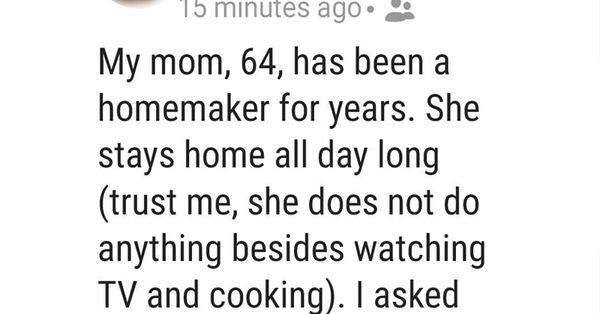Erika, a 29-year-old woman, recently reached out for advice on Reddit. She found herself in a predicament with her mother after giving birth to her child. Erika needed help taking care of her newborn when she returned to work, but her 64-year-old mother declined her request. She believed she was too old and had already raised her own children. Instead, her mother suggested that Erika should have stayed home, like she did, and take care of the baby while her partner provided for the family. However, Erika explained that their financial situation made it impossible to survive on a single income. She felt torn between finding a solution and questioning if she was being unreasonable in wanting her mom to babysit for free.

Erika and her partner were facing financial challenges, further worsened by the aftermath of the pandemic and the potential economic downturn. Erika had student loans and other debts totaling $39,000, while her partner had $5,000 in credit card debt. As the higher earner, earning $55,000 per year, it was necessary for Erika to return to work to support their family. The small one-bedroom apartment they currently lived in would soon become impractical as their baby grew older and needed more space. Saving money to eventually move into a larger two-bedroom apartment became a priority.
When Erika shared the financial realities with her mother, she received an unexpected response. Her mom offered to take care of the baby but requested to be compensated for her time. She asked for $20 per hour and even added late fees for pickups that went past the agreed-upon time. Furthermore, Erika had to provide all the necessary baby equipment and supplies as her mom refused to enter their home due to personal reasons.

Erika found herself torn between wanting to save money and reduce their debt and not wanting to accumulate more financial obligations. Paying her mother and investing in duplicate baby items would only add to their mounting debt. She considered enrolling her baby in an infant daycare, which could potentially offer a more cost-effective solution closer to their home. Unfortunately, working from home was not an option for them, leaving them in urgent need of reliable childcare. Other family members also had full-time jobs, making it difficult for them to assist due to overlapping schedules.
So, the question remains: Is it wrong for Erika to expect her mom to care for her baby for free, considering her mom’s availability during the daytime and their desperate need for affordable childcare?







